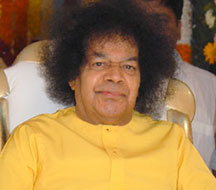
God is all pervasive and permanent
Puttaparthi, Sai Kulwanth Hall (Ladies Day )
Description
Narada explains the nine types of Bhakthi - listening, singing, thinking of God, serving His feet, prostrating to him, worshipping, being a servant to him, being a friend, self-surrender. These are all impermanent practices, spiritual practices. You should consider that that the whole universe is God. The universe is the very form of God. The Universe and Vishnu are both interdependent. 'This' is the foundation, 'that' is the result. The Vishnu principle is the Cause of the universe. Vishnu and the Universe are reason and the result. So there is permanence in the impermanence. So this is what is said in the vedas also. That which is steady makes things move. It doesn't move, but it does all the work. There is a good example for this. You are sleeping after you had your food. Your body is on the bed. But in your dream you are doing so many things . You are going to many places. You are subjected to lot of joys and sorrows. How is that you are seeing these things? In your dream you are moving around. But your body is steady on the bed. So all that you experience in the world, in the flux of change, sorrows and joys, these are all the dreams that you see. All that we experience today is merely a dream. Atma is the only permanent one, which never changes. This is the steady one, which moves. The unity of that which moves and that which is steady is the principle of humanity.
Topics
-Spirituality
-
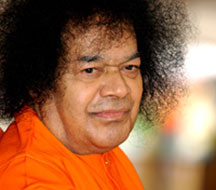
Truth, brahman doesn't die at any given point of time: With Analogies
00:03:00Some millions of years ago, the Sun blew up due to excess of Helium gas in it. The Sun blew up into small pieces. The stars are the pieces that blew away from the Sun. Not only the stars but the Milky Way also has its beginnings from the pieces of the sun. Then when can the birth and death be decided? When there is a form then there is birth and death. But there exists an entity that lives even after the form perishes and that is the ‘truth’. A small example to illustrate this: ‘Aavu’- cow, is the name given to a cow. The name cow remains even after the cow dies. Similarly, the word ‘human’ remains even after the human dies. So also when Atma adorns a body it remains even after the death of the body. Mr. Jhumsai also said that one should be in search of truth. But one need not search for truth. How can one search for the truth that is all pervading? If there is a place where truth is not present then one can search for it elsewhere. The word of ‘truth’ spoken might die but the truth remains eternal. Likewise the nature of Brahman is changeless. The principle of Brahman is everlasting. It exists in the form of sound, light, movement, awareness, conscience and consciousness. How can one decide the exact form of Brahman? All forms are present in this truth. Vedanta has been propounding this aspect.
-
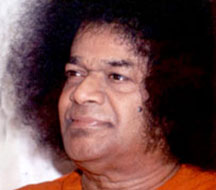
Spirituality must begin at a tender age: Analogy
00:03:18Some parents criticise when their children start to engage themselves in bhajans or devotion or in meditation. They tell them, “O madcap! Why do you need devotion, bhajans or meditation in this tender age? First you study well, procure a good job, earn money and after retirement then you can sit with the rosary.” Pada padamanchu kinkaralu paasamu laagedi vela Bandhuvul dabadaba bayata pettudika laabhamu ledani cheppu vela, Aalubiddalun labalaba yedchu vela Tarama hari naamu notanu palka?! When the hoop of death is thrown by the soldiers of death God, When the relatives say it’s hopeless, put the body outside, When wife and children start crying, Is it possible to chant the name of the Lord? After retirement when all the senses and limbs become weak how can a person engage in japa or bhajans? People eat fresh and healthy fruits, not the rotten ones. Having wasted the prime of life what spiritual practises can a person do in the ripe old age? In order to win the war and attain success, the soldiers must be recruited while young. Only after passing the recruitment phase, can the soldier enter the war and gain success. Hence, right from the young age one needs training. The chanting that is done all through life alone will be of succour at the time of death. If one does not inculcate devotion when young how can one get in later life? It is a big mistake to think that one can develop devotion later on in life. It must start right away. A tree will be straight only when it is straight as a plant. If the plant is slanting the tree too would become lopsided. This tender age is very sacred to fill one’s heart with love for the divine. One must fill one’s heart with the spirit of sacrifice and enter into service. Whatever work one does, it must be done as God’s work. Na tapaamsi, na teerthaanam, naa shastranam, japa nahi, Samsaara saagarottare, sajjanam sevanam vina!! Neither penance, nor pilgrimage nor scholarship nor chanting Will take one across the ocean of world! It is the service done to the fellowmen That takes one across the ocean of world!! No penance, no reading the sacred texts nor doing yoga, one must participate in the service. Whoever one may serve one must consider it as rendered to God. God dwells in all. ‘Ekatma sarva bhootantaraatma’ it is one atma that pervades all. If one does not fill one’s heart with pure and sacred feelings today, it is a big mistake to think that it can be done later.
-
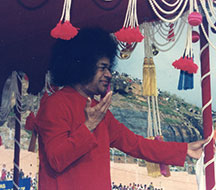
What is Sath, Chit, Ananda
00:03:51God is the one with the three attributes of “Sath”, “Chit” and “Ananda”. “Sath” is present as the “Atma Swaroopa”, the self, throughout one’s life. Sath remains forever whether the body is there or not. Hence Sath is known as “being”. “Chit”, means “awareness”, the knowledge of everything. Knowledge of few aspects does not imply that one has fully evolved Chit. One must have knowledge of everything. One must know all the aspects pertaining to the ethical, political, physical, moral, spiritual and worldly domains. The power of Chit is developed only when one realises the truth of all aspects. A doctor has the knowledge pertaining to medicines but has no knowledge of other aspects. Hence the Chit is not present in its totality in doctors. The doctor lives his life only in a particular angle. There is an engineer, who invests his energy in either constructing the buildings or in laying the roads. He may not have a working knowledge of many other things. Hence in him, too, the Chit is present in only one part. Similarly, each person develops this Chit, the life force, in parts. But being the Sathya Sai Sevadal, one must develop infinite power of Chit. This totality of Chit is available when one realises the unity in all. A small example to illustrate this: There are the sweets, mysore pak or a gulab jamun or a laddu or jalebi- the names and forms might be different but the sweetness of sugar is same in all. When one remembers this truth, all become one. Likewise, though the people, countries, thoughts and ideologies are different, the underlying principle of divine is same in all. When one realises this principle, one can understand all.
-
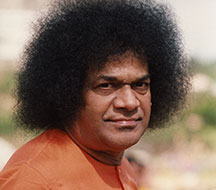
True spirituality is seeing oneness in everything
00:00:51Sathya Sai Organisations must not only teach spirituality but efforts must be made to change every activity into a spiritual pursuit. True spirituality is to develop the unity in humanity, unity in divinity. How can one achieve unity in divinity? This unity can be got through the purity of mind. Without a pure heart one cannot achieve unity.
-
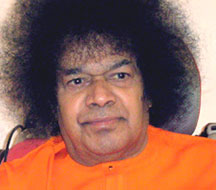
Pranava is Brahman
00:03:55When good words are told we listen with one ear and allow them to leave through the other ear. When bad words are told, not only we hear them with rapt attention but also ensure unity of both ears in listening them! Can such a human attitude be admired? No- Not at all. One should listen to good words always. There is a small story to elaborate this. In good olden days, saints used to perform Pranopasana by chanting Pranava (Om) and Demons used to obstruct their chanting in several ways. When saints start uttering Om, demons used to emit foul odour from their mouths to pollute the sanctity of Pranava. Saints thought over and thought it best to listen to the sacred mantra, by themselves, within their own ears. Demons started making wild sounds in their ears to disturb the ritual of chanting the mantra. Saints then thought over the matter and started to practice reciting Pranava through their Inhalation- Exhalation process! Demons can only reach up to the anatomy part but not the Life-Breadth. That’s how saints could continue their Pranavopasana through their Life-Breadth since then. God, to protect the saints from demons, kept the Pranava in Him and that’s how Pranava is Brahman and Brahman is Atma. Thus, all three are one and the same. We should sincerely pray God. You should not say Sai Ram from the lips and think of Donga Ram from within! The word should come from deep with you. One should not deceive in any other way.
-
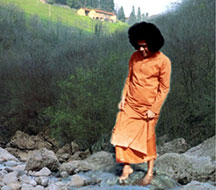
Outer appearance and Inner conscience
00:01:00By merely putting on robes, one doesn’t become a Sanyasi! If robes are to be taken as identity proof for a Sanyasi, then Ravana also wore such robes and kidnapped Sita. Arjuna also wore such robes to walk away from the war and reached Pramila in disguise. Sanyasa is not to be equated with the body and robes. It must be manifested with character and virtues. Because of the prevalence of such dualities, we are getting bewildered!
-
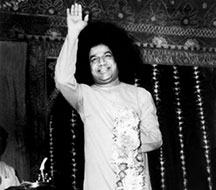
What do you mean by Moksha
00:01:59In ancient times, the world population was hundred crores. Now it has increased to five hundred and forty crores. The population has grown but the aspiration for liberation as declined! When the population was just hundred crores, most of them had faith in God. Today that faith in God is on decline and atheism is rampant along with desire for worldly pleasures. Hence, people are not bothered about liberation at all. One has to first and foremost know the meaning of ‘liberation’. The word ‘Moksha mu’ has three letters. ‘Mo’ implies ‘Mohamu’, desire or infatuation. ‘Ksha’ implies ‘Kshayamu’ decline. When infatuation declines one gets ‘mu’ ‘Mukthi’ or liberation. Infatuation has increased limitlessly. One resorts to worship of Devi to reduce the infatuation.
-
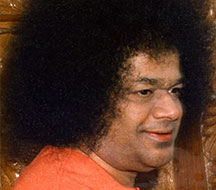
Man can put an end to the cycle of birth and death: With Beautiful Analogies
00:05:58“Apart from the will of the Lord, there is man’s effort also, to some extent, in the process of creation, sustenance and annihilation of creation. Man reaches his destination based on his deeds and on his thoughts. That is the reason man, who is born of “Madhava”, the Lord is forgetting the Lord. Man is becoming a demon and behaving like an animal wasting the sacred life given to him. Son, there is none without death and birth. But living beings have the capacity to put an end to rebirth after death. The end is in man’s hands. A small seed of green gram when sown in soil transforms into a sapling which gives many pods. But none can point out the origin of the green gram seed nor trace its predecessors. No one knows for how long this seed has been taking rebirth. Hence nobody can pin point the origin. But the end of the seed is one’s hands for when the seed is put in the mouth and chewed; it is the end of the seed. Therefore the beginning is not in one’s hands but the end is. Nobody can definitely tell about the birth and beginning of man. But the end is based upon one’s Sadhana. When travelling towards North with love for Brahman, knowledge of Brahman and with divine love one can attain divinity. Students!! A paddy seed has husk on it. As long as there is husk on the seed, it has the cycle of birth and death. But once the husk is removed it becomes rice. The rice, even though it is put in soil, does not germinate; it does not have the cycle of birth. Paddy has birth but rice within does not have birth. What is the difference between rice and paddy? Paddy is with husk and rice is paddy without husk. With desires man falls prey to the cycle of birth and death, “Punarapi jananam”. Without desires man is liberated from the cycle of birth and death, “Punarjanma na vidyathe”. Hence man is travelling on the basis of matter. His whole life is filled with matter. This is referred to as “Rayee”, which is the splendour of the Moon. ‘Moon’ here does not mean the shining physical entity but “Chandrama manaso jayathaha, chakso suryo ajayethe.” one’s mind, which is likened to moon. One cannot escape the cycle of birth and death as long as there are thoughts and counter thoughts arising in the mind. When these thoughts are replaced by those of Brahman and silence the mind, then there is no more rebirths. Hence O Bhargava, you are thinking that the birth and death unavoidable and have been existing from eternity. No it is not true. There exists a state that is beyond birth and death and that is attainable.” And so answered Sage Pippilada to the question posed by Sage Bhargava.
-
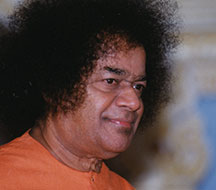
Ekoham Bahusyam: One seed becoming many
00:01:15“Ekoham Bahushyam”, the one manifests as many. It manifests as many although it exists as one. How is this possible? A seed when sown in the soil develops into a giant tree bearing many fruits and each fruit has many seeds. The numerous seeds in those fruits give rise to numerous trees. Though it is only one seed that is sown, it has transformed into so many trees. What is the reason for it? That is the principle of one manifesting as many. One seed is transforming into many trees. One life divided itself into many lives.
-
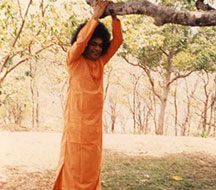
Man should get rid of selfishness and self interest to grow in spirituality
00:02:30One must not only sanctify one’s life by remembering God but also develop morally, ethically and spiritually. Today the world has progressed in the fields of science and technology. But morally the human kind is on the decline. What is the reason for this? Selfishness and self interests are the reason for the downfall. Man does things keeping his self interest in view. And he has selfishness as motive behind his every thought. Man is like a puppet in the hands of selfishness. Therefore one must give up the selfishness and self interest and develop social awareness and societal feelings. Man is unable to take even a step without selfish motives. Hence man today is bound by the shackles of selfishness. The day man gives up the selfishness to spirituality, that would be the day of realising the reality. One must cleanse one’s heart by developing sacred thoughts and by controlling the wavering nature. One can achieve success, even in small tasks, in the path of spirituality when one’s heart is pure, unsullied, selfless and steady.
-
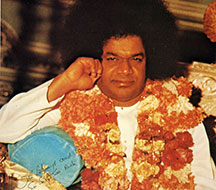
Follow your conscience, it knows the way: Concept of Sath, Chith, Ananda
00:03:28One must never be in a hurry and enter into action peacefully. One should discriminate the good and the bad in their determination. First and foremost one must discriminate if it is good or bad, right or wrong and jump to action when one’s conscience tells it is correct. One does not need any witness for one’s conscience is one’s witness. And that is called as “Chit” What is “chit”? It is the awareness. Awareness, conscience and chit are all one and the same. The words are different but the object is one. Though the object is one, it is known by different names as it does different functions. When a Brahmin cooks he is called as a “Brahmin cook”. A Brahmin who worships in a temple is called as “Brahmin priest”. A Brahmin who foretells future is called as “panchanga Brahmin”. The same Brahmin, based on the activities he indulges in, is called by different names. Therefore chit, conscience and awareness mean the same. Chit is very valuable. That which resides near ‘sath’ (Being) is called as chit (awareness). It is the chit, awareness that proves the sath. Without the awareness the existence of sath (Being) cannot be proved. There is the tumble the existence of which is proved by the light. It is the light that illumes the tumbler. The tumbler does not make the Sun shine. Likewise it is the chit (awareness) that illumes the Being, sath. Sath means Being, existence; it is that existence which is permanent and changeless. It is the chit that proves the permanence of Sath, Being. Therefore one must follow one’s conscience. Swami frequently tells about this as the four F’s. First F- “Follow the master”. Who is one’s master? One’s conscience is one’s master. Hence one must follow one’s conscience as that is one’s Guru, teacher and God and witness. Hence follow the master. The second F- “Face the devil”. One must never get scared of the bad qualities, wicked thoughts or wicked deeds. Hence, “face the devil.” The third F – “Fight to the end”. Come what may, one must persevere to overcome the devil.
-
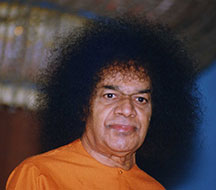
Silence improves the spiritual power: Talk less
00:00:50That is the reason why the sages of ancient times took to silence and were able to realise the divinity through silence. Being silent increases the spiritual power. Excessive talking leads to nervousness in man. Due to the nervousness one loses the discrimination of what to speak and what not to speak. The less one talks the more one serves.
-
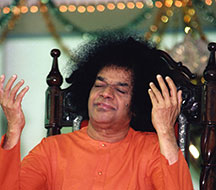
Excessive talk leads to many problems: Practical analogies
00:03:43Students!! The present day student is highly confused. The one who can talk does not study and the one who studies does not talk. Bhagawan cautions repeatedly by saying, “less talk more study”. The human values have vanished today. Human being is not behaving like a human today. He thinks something, says something else and does something completely different. Man is wasting his time by talking too much. He is losing the divine power and sanctity bestowed upon him. By talking excessively man loses his memory power. The power to concentrate too dwindles. He also loses the divine energy given to him. Talking excessively increases hunger. Increased hunger leads to more eating. Man becomes lazy and a dunce by eating too much and a dunce cannot be sincere in any task. Such a person will not show interest in any form of service. The spirit of service is essential among youth. In order to serve one must eat limitedly. “Excess eating causes loss of senses, limited eating renders one active”. Vallabhai Patel used to say, “Talk less and work more!” and he used to do his work in a very disciplined manner. People used to call him a practical man. Vidura too said that the power that is in silence is nowhere else.
-
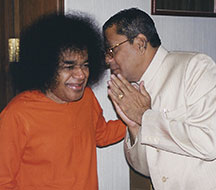
Spirituality has become business today
00:01:16In this Kali age, spirituality has become a business now. That day the spirituality becomes down to the level of business, It is no longer spirituality. There should not be any traces of business in spirituality. One has to know the difference between worldly love and spiritual love. The worldly love only receives. Divine love, spiritual love gives. God's love goes on giving and giving. This is true divinity. This is sanctity. Spirituality runs in this direction opposite to the worldly way. We thread along the worldly direction, we waste our life in every possible way. This is external path. we should proceed in inward path.
-
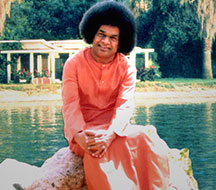
Maya or illusion never harms you
00:03:21In this knowlege of truth,the ‘vaayuvu’ the air is also a truth. It is present everywhere but neither can it be seen with the eyes nor can it be caught with hands. Just because one cannot catch it or see it, one cannot say that the air does not exist. The air is all around but is neither seen nor can be held. There is no life without air. This air is an illusion. One may think that the air may help or harm one, but this illusion will never harm. Many times one blames the ‘Maya’ or the illusion for one’s sorrow. Who is trapped by ‘Maya’, illusion? Illusion does not have hands and legs; it is the man who has the limbs and therefore it is the man who has trapped ‘Maya’ but not vice versa. Illusion has no hands so it cannot trap man. It is the man who has hands and it is he who has trapped Maya. Man must catch hold of the Brahman just like he has caught hold of illusion. Out of the waters of the ocean of Brahman emanates the air which creates the waves called beings. Illusion is the primal cause for the whole creation. “Maya yandu putti, Maya yandu perigi, Mayanerungare mandamathulu!!”- having been born and brought up in illusion, the ignorant man does not know illusion. "Brathukulanniyu Maya", Life is illusion. “Bhavabandhamulu Maya” bondage is Maya, “samsaaramadi Maya”- family life is illusion, “Chaavu Maya” death is illusion. “Maya bratukukintha Mayalo badanela?” why fall in illusion for life filled with falsehood and illusion? It is the ignorance that is the root cause for all this. What is the cause for ignorance? Man’s action is responsible for ignorance. Action leads to birth; it is the birth that gives rise to delusion and it is the delusion that makes one ignorant. Therefore, one’s action is the primal cause for everything. The action must be investigated. As is the action so is the result.
-
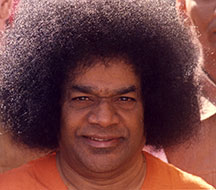
Sathyam, Jnanam Anantham Brahma: With Analogy
00:00:22Hence “sarvam gnyaanamayam”, everything is wisdom; the whole world, the individual, the society is full of wisdom. That wisdom is the embodiment of the Brahman, the eternal truth. Therefore “Sathyam gyanam anantham brahma” God is the eternal truth and endless wisdom!!
-
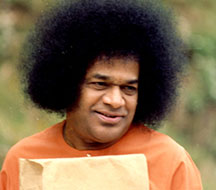
Every man is a Ardhanareeswara
00:00:34Parvathi and Parameshwara are not separate entities. Parvathi is steadfastness and Eshwara stands for faith. Therefore, Parvathi and Parameshwara are the embodiments of steadfastness and faith. Every man has the steadfastness and faith. Hence every man is essentially “Arthanarishwara”, androgynous.
-
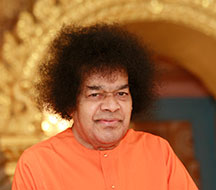
Our actions are permanent
00:00:23Hence, life is not true, it is not permanent; one’s deeds and actions are true and permanent. One must develop the qualities of peace, truth, and virtue through one’s actions. One must strive to be in close proximity with the divine.
-

Swami on the importance of Bhaja Govindam
00:02:42Divyatma Swarupas! Young students, the teacher-taught relationship has been very sacred in our traditional way of life. In that context, the verses that go under the name of Bhaja Govinda have a very special significance. Adi Sankara wrote thirty verses under this name and handed them over to the world through himself and his disciples. Because of their importance, I wish to take each one of these verses on each day of the next thirty days and tell you how Sankara’s disciples propagated the contents and the sacredness of those verses in the world. The essence of all the Vedas, all the Sastras, and all the Puranas is contained in an explicit manner in these verses.
-
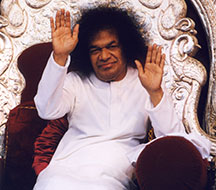
Swami explains Rutham, Sathyam and Dharmam
00:03:25A thief, who has entered another house and committed a theft, may say that he has not committed a theft when confronted by the police. This is only a pretense. His heart knows fully well the truth that he has committed a theft. That which has been so imprinted on your heart is called Rutha. The truth about the ideas which generate in you, when imprinted on your heart, is called Rutha. The utterance with your mouth of the idea that has been imprinted on your heart, is called the truth. Putting the words that have been uttered with your mouth into practice is called Dharma. The meaning of Dharma or right conduct will therefore be evident and correct only when there is complete co-ordination and an inseparable association between the idea that has arisen in your heart, the word that you have spoken with your mouth and the action that you have undertaken with your body. Thus, if there is complete co-ordination between thought, word and deed, one would call it right conduct. Today, we have not understood properly this sacred word dharma and its full meaning. We have been giving various interpretations to suit ourselves. This is the unfortunate predicament prevalent today.
-
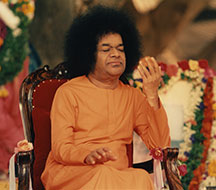
Life's journey is all about, 'I' to 'WE'
00:01:17Life consists in man’s attempt to move from the place called “I” to a place called “WE.” If each one becomes so selfish that he always desires that others should respect him and thinks that his interests alone matter, while he himself does not wish the well-being of others nor does he respect others, all of us will be following what may be called a one-way traffic. Life is not a one-way traffic. You should conduct yourself in such a way that you give happiness to others and then ask others to give happiness to you.
-
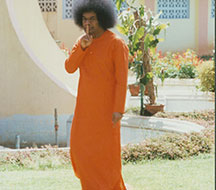
What is the meaning of spirituality
00:01:41What is the meaning of spirituality? Thinking constantly of the self is considered as spirituality; no it is not so. Killing the animal nature in oneself and transforming the human nature into divine is termed as ‘spirituality’. But is it being done? Man has turned the human life into demonic one and is not making any effort to transform it into a divine life. Such transformation is “spirituality”. Man today is neglecting the sacred principle of spirituality. One considers spirituality as a matter of celebration with indulgence in delicious food and celebrations. That is not spirituality. One should think and ponder on the inner significance of every such sacred festival. One must consider oneself as a divine being in a human body for, then alone can one get rid of the animal nature in oneself. The animal nature has taken over man and he has become one of beastly nature while he has forgotten his human nature.
-
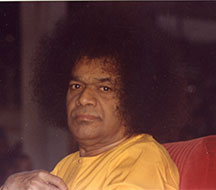
Swami on Yogi, Rogi and Bhogi
00:02:21God's acts depend upon the devotees' understanding. For people who go on praying that God have you not been able to see our prayers, our difficulties and our problems and our sorrows, there you can get God's eyes and God's ears only but the full form of God is not visible to them. The position of today's sadhakas is such that at the time of doing meditation they give the impression they are yogis themselves but at the end of that momentary Dhyana he starts living an indulgent life immediately afterwards. But this is not what has been told by Krishna. You should be a Yogi all the time. If you are a yogi in the morning and indulgent or a bhogi in the afternoon and then you become a rogi, a sick person in the night how can you be a yogi always? On the other hand you should be full of feeling of divinity at all times and in all places whatever you are doing.
-

All spiritual paths are challenging
00:03:00Whatever path one may choose, facing difficulties is inevitable. This world is a dual world. With happiness comes sorrow, bad always trails the good. Unsacredness shadows sacredness. Along with good people, bad is also always following. We should not bother about these things. Regarding our selfless work as our goal, we should attempt to perform our duties. Because Mohammad taught the principle of worship of one God, he was driven out of Mecca. Because Jesus taught the principles of kindness and righteousness, he was regarded as a traitor to the king and was crucified on the cross. Harishchandra who regarded truth as the most important aspect of his life ultimately had to sell his wife and children. Hence, people who want to follow the path of truth, of the path of dharma and the divine path, they will always meet with troubles, obstacles and suffering. They are subjected to blame. Without bothering about criticism which are like temporary passing clouds, one should bear in mind the goal of truth and achieve our objectives.
-
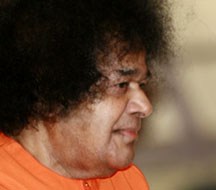
What is the True meaning of Spirituality
00:00:52Spirituality does not mean a life of loneliness or solitude. Spirituality is one which is beyond all sorts of attachment and hatred and makes you understand the feeling of unity, oneness among all. It is a mistake to take the spiritual life to be one of solitude or loneliness. One must understand the meaning of spirituality within oneself.
-
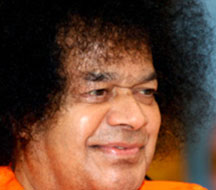
Man's journey from I to WE
00:00:46You can take the short cut in man's journey to God, from I to WE. We need not go far. If we have to go to Benaras, Kashi, Prayag, Guaya etc, we need to go a long way. This is a short cut. Giving up that narrow principle of I and mine, going beyond that into the WE. To go into that state of bliss you require the grace of the mother.
-
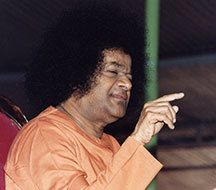
Swami on the principle of Soham
00:01:10There is no God beyond the mother, there is nobody better than your father, beyond everything there is God, that is Eshwara.That Eshwara principle starts from 'Soham', here it is earnestness and the other is faith. So when Soham starts, it is the very principle of God. 'So' is 'That', 'Ham' is 'me' - the underlying meaning is TAT TVAM ASI. So every person who is born out of the mother's womb should grow up in such a wonderful way as to protect the fame of the mother, her prestige, her respect, you have to grow up in such a wonderful way as to protect and respect your mother.
-
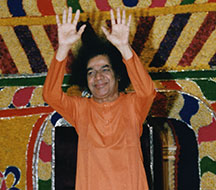
What is Sath, Chit and Ananda
00:03:23You are seeing how devotees love God. You are only measuring your love. No, that is wrong. You have got to measure how much God loves you. It is in the combination of these two things that you would experience the divine, which is without form, blemish less, eternal, the ultimate refuge, everlasting, self-effulgent, free and pure. That is the Brahma principle, the Eshwara principle, the atmic principle. Therefore, we need to gradually forget all these delusions which concern this world. We have got to inculcate greater reliance on the Chitta. There is nothing beyond the Chitta. People think that Chitta means the heart. Chitta is not that. (We say) Sath, Chit, Ananda. Sath is permanent, Chit is that which is full, the combination of these two is Anandam. Sath, that which is true, is true for all three modes of time. At any time, it is always sweet and nectarine. We have got that sugar on one hand, we have got wisdom which is full and complete on the other hand. This complete wisdom is like water. The sugar is the atmic principle of God. When you mix the sugar and the water it does not remain sugar and water but it becomes syrup. So we have got to combine the Sath and Chit, the Truth and the Fullness. In the Veda, they declare: Om tat sath. Om is highest Brahman. Tat means 'That'. So, Sath Chith Ananda. There is no ananda or joy beyond it. We want to enjoy happiness. What is the happiness that you experience? The transitory happiness is what you experience. This is not permanent. We have got to strive to experience joy which is endless. And that is only that which comes from within you, that is of the atma. It has no form. It is full of bliss. Bliss is its form. You cannot measure it. You can only experience it. Embodiments of love! Every man comes full of love.
-
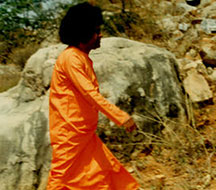
Meaning of Gayathri Mantra
00:01:00He said, 'Bhur Bhuvah Suvaha'. There is nothing beyond these three in this world. The BHUR is materialization, BHUVAHA is vibration, SUVAHA is radiation. Materialization, vibration and radiation. Radiation is divinity, vibration is life, materialization is the body. All the three - the body, the mind and the self - are within me. You are not one person, but three - the one you think you are - the physical body, the one others think you are - mental body, the one which you really are - spiritual. Know this truth, then you can be a true human.
-
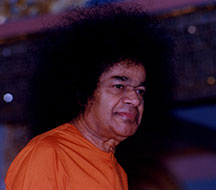
Be a change before you aspire for it
00:01:17So we should utter sacred words. We should not use words which hurt anyone. We should not abuse anybody, we should not criticize anybody. Then the immortal nectarine feelings will find a place in us. Because of ignorance, you don’t have love for God and fear of sin, the human value is lost, not manifest in man - this is the cause of revolution in this world. What is the reason for revolution? Your life is responsible. If your life is good, then the whole world is good. So you should be good to start with. Speak nicely. Let your behavior be good. Then your life will be good. We should reform ourselves, and find a way to share the goodness of our life with others.
-
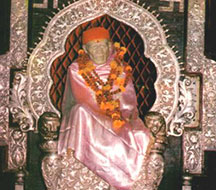
Follow your Conscience
00:00:40Embodiments of love! Emperor Bali attained heaven because of truth. Bali wanted his position due to love. The body vanished but the mind remained sweet. The body has to perish one day or the other. Body is like a water bubble, mind is like a mad monkey. Don’t follow the body, don’t follow the mind. Follow the conscience. That is the teaching of Bali, changeless, deathless.
Topics
- Analogies
- Atma
- Attachment
- Balvikas
- Bhaja Govindam
- Bhajans
- Body
- Character
- Company
- Compassion
- Culture
- Day to day
- Desire
- Devotees
- Devotion
- Dharma
- Discipline
- Discrimination
- Doctors
- Education
- Faith
- Festivals
- Forbearance
- Gayathri
- God
- Gratitude
- Guru
- Health and healthcare
- HIS Life
- Human values
- India
- Karma
- Love
- Mahabharata
- Man
- Meditation
- Mind
- Music
- Musicians
- Namasmarana
- Nature
- Parents
- Philosophical concepts
- Pleasure and Pain
- Practice
- Ramayana
- Religion
- Sacrifice
- Sadhana
- Sai Organization
- Saints
- Sathya
- Science
- Senses
- Service
- Sevadal
- Shanthi
- Shirdi Baba
- Society
- Students
- Thoughts
- Time
- Unity
- Upanishad
- Vedas
- Vices
- Yoga
- Youth
